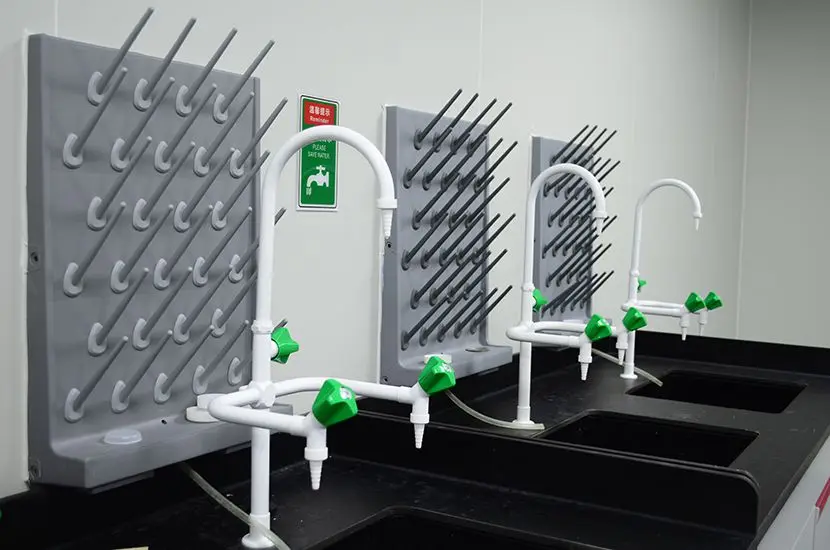
FCC Certification for GPS Module
What documents are required for FCC certification of GPS modULes? GPS modules, used in cars, motorcycles, and electric vehicles, primarily serve the purpose of vehicle tracking, positioning, and anti-theft. Through mobile phones and networks, one can query the location of the vehicle. Firstly, the GPS module is not a standalone hardware device; its use must be accompanied by a monitoring platform. The monitoring platform is mainly used to monitor the real-time position of GPS devices, as well as features such as driving trajectory, alarms, commands, statistics, etc. GPS modules are also known as GPS trackers, and currently, they are mostly used in fleet tracking management and control.
Federal Communications Commission (FCC) - Oversees the import and use of radio frequency devices, including computers, fax machines, electronic devices, radio receivers and transmitters, wireless remote control toys, telephones, personal computers, and other products that may pose a risk to personal safety. These products, if intended for export to the United States, must undergo testing and approval by government-authorized laboratories according to FCC technical standards. Importers and customs agents must declare that each radio frequency device complies with fcc standards, i.e., FCC certification.
There are three modes of FCC certification: Verification of Conformity (VOC), Declaration of Conformity (DOC), and fcc id.
Three FCC Certification Modes in the United States:
1. FCC - VOC: This mode belongs to self-verification. Examples of long-term products include AV products, corded telephones, general household appliances, commercial PCs, etc. Devices suitable for self-verification include commercial computers, TV and FM receivers, and industrial, scientific, and medical equipment not intended for mass consumer use under FCC Rule Part 18. Manufacturers or importers ensure that their products undergo necessary testing in FCC-accredited laboratories to confirm compliance with relevant technical standards and retain testing reports. The FCC has the right to request manufacturers to submit testing data for device samples or products.
2. FCC DOC: Declaration of Conformity for products such as home computers, computer peripherals and accessories, civilian radio receivers, other receivers under FCC Rule Part 15, television interface devices, cable system terminal equipment, and industrial, scientific, and medical equipment for mass consumer use under Part 18. The responsible party (usually the manufacturer or importer) tests the product at FCC-designated qualified testing institutions to ensure compliance with relevant technical standards and retains testing reports. The FCC has the right to request the responsible party to submit testing data for device samples or products. After passing the test, the product obtains DOC and a test report, and the manufacturer can affix the fcc logo to the product for sale in the US market.
3. FCC ID: This is the Certification Certification. FCC ID certification applies to low-power transmitters such as cordless telephones, remote controls for automatic doors, wireless remote control toys and security alarm systems, devices intentionally emitting radio frequency energy under Part 15, industrial, scientific, and medical equipment for mass consumer use under Part 18, automatic frequency receivers and super regenerative receivers, television interface devices, and home computers and peripherals. Products must undergo testing at FCC-accredited testing laboratories and, after obtaining test reports, compile technical information about the product, including detailed photos, block diagrams, user manuals, etc. This, along with the test report, is submitted to an FCC Tcb testing laboratory. The FCC TCB testing laboratory confirms the accuracy of all information and issues a certificate authorizing an fcc id number.
For customers applying for FCC CERTIFICATION for the first time, they must first apply to the FCC for a GRANTEE CODE number. After the product passes the test and certification, the FCC ID number can be labeled on the product for sale in the US market.
FCC Certification Standards
The main FCC standards are as follows, with fcc part 15 and PART 18 being widely applicable:
FCC PART15 C/E/F Intentional Radiator Device testing
fcc part 18 Industrial, Scientific, and Medical Equipment
FCC PART 22 Public Mobile Communications Service
FCC PART 24 Personal Communications Service
FCC PART 25 Satellite Communication Service
FCC PART 27 Other FCC Wireless Communication Services
FCC PART 68 Telecommunications Terminal Equipment
FCC Part 15 specifies requirements for intentional, unintentional, or incidental radiators that do not require individual licenses for transmission equipment. It includes technical specifications, administrative requirements, and other market access conditions.
Products are mainly divided into four categories: unintentional radiators, intentional radiators, personal communication devices not requiring licenses, and national infrastructure devices not requiring licenses.
FCC Part 18 regulates the electromagnetic energy emitted by Industrial, Scientific, and Medical Equipment (ISM) operating in certain spectra to prevent such equipment from causing harmful interference to authorized wireless communication services.
Email:hello@jjrlab.com
Write your message here and send it to us
 Cost of U.S. FDA CFR 21 177.2600 Test Report
Cost of U.S. FDA CFR 21 177.2600 Test Report
 How much does the IP44 Compliance Test cost
How much does the IP44 Compliance Test cost
 What is LFGB Test
What is LFGB Test
 What does LFGB certified mean?
What does LFGB certified mean?
 Weee authorised representative germany
Weee authorised representative germany
 Where to Apply for 2026 Air & Sea Transport Ce
Where to Apply for 2026 Air & Sea Transport Ce
 Guide to IEC Test Reports for Lighting Exports
Guide to IEC Test Reports for Lighting Exports
 IEC/EN 62471 and IEC/EN 62778 (Photobiological Saf
IEC/EN 62471 and IEC/EN 62778 (Photobiological Saf
Leave us a message
24-hour online customer service at any time to respond, so that you worry!




